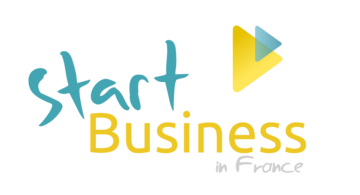1. Is your activity regulated?
Many activities are regulated in France: electrician, plumber, builder, beautician, accountant, nurse, transport, etc. Most activites artisanales require a diploma or 3 years experience. Check with your local Chambre de Metiers if you will need to prove your qualification.
2. What is the impact of your legal structure on your liability?
As a rule of thumb entreprise individuelle such as micro entreprise or auto entrepreneur means that you are liable on your personal asset for the debts incurred by the business. A legal act called acte d’insaisabilite could be drawn by a notaire to protect your house. Other business types such as EURL, SARL or EIRL will enable you to limit your liability. The EIRL to be launched in January 2011 will enable existing entreprises individuelles to establish a professional asset or patrimoine professionnel on which your liability will be limited.
Make your decision based on the risk involved with your activity, e.g. riks of being sued by a client or partner, potential damages caused by your products and the risk of incurring debts, e.g. major client refusing to pay a bill.
3. Will you work with someone else and what is the most tax efficient option?
An entreprise individuelle is registered under your personal name. The only way to work with a partner is therefore if she/he is employed (incurring 42% of employers social charges on their salary) or if she/he becomes your collaborating partner - conjoint collaborateur. This second option, by far less expensive, can only work if you are married or PACSed (civil union partnership). Ask yourself if you both need to work in the business straight away or if one of you could join later to diminish the costs.
If you are setting a business up with a business partner, you need to start a limited company SARL. Think about about the share repartition, who will be the main manager (gerant majoritaire) and check the impact on your social cover (gerant majoritaire is considered as self employed, while gerant minoritaire has a status similar to employees).
4. How much money do you need to launch your business?
Assess how much money you will need to launch your business and to sustain it for a full year. Include equipment, van, stock, shop or workshop refurbishing, marketing budget, set up and legal fees and some cash flow to pay your expenses for a few months. Write a provisional plan or ask an accountant. Establish your break even target and translate it in number of customers based on an average order. There are many schemes in France to help entrepreneurs, so check with your Chambre de Commerce or Chambre de Metiers if you could benefit from any free help.
5. Can you invest in your business or do you need to borrow money from a bank
Don’t wait until you have been in business for 6 months to request a business loan. Most banks assess your business potential before you start: experience on your CV, business plan, turnover forecast, ability to reimburse you loan while covering for your expenses. A provisional plan done by an accountant can be more effective than a business plan if you cannot write it in French. Accountants usually do these for free, expecting to sign you up as a client afterwards.
My experience with French entrepreneurs is that banks will assume a lack of planning and forecasting if you ask for a business loan a few months after your launch. They will request a copy of your accounts or your profit and loss account bilan, which is a polite way to say no thank you.
There still are other questions to ask yourself before starting a business in France, but I will stop here for now. Think about all these questions and try to put some figures together for your new business. I will publish another article soon on the same topic to cover the legal advice, social charges, healthcare and income tax.
